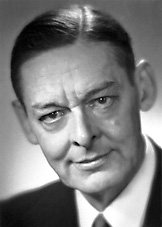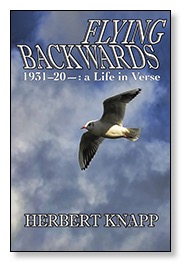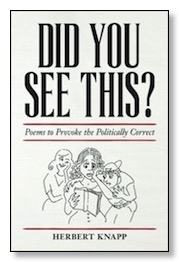What Happened to Poetry—Part Two
After the First World War, people all over Europe were fed up with the traditional political class that got them into it and with the traditional economic arrangements that kept that class in power. The result was called “the revolt of the masses.” In Europe this revolt took different forms in different countries: Communism, Socialism Fascism, and Nazism. The leaders of all these “isms” promised to abolish tradition, forget the past, and start over with a clean slate.

Poets wanted to start over, too. The communist and socialist poets tried to start over by writing simple poetry for the simple masses. But the masses paid no attention to them. T.S. Eliot did the opposite. He wrote for a discriminating few and became the most popular poet of the century. What fascinated his readers was his emphasis on history. Looking back at the variousness of the past was liberating. Looking forward to a utopia where everyone was the same was depressing. Readers also liked the fact that Eliot’s poetry made them feel superior. We all like feeling superior.
The literary snobbery Eliot made fashionable helped maintain the cultural status of poetry up to the end of the Second World War, 1945, but it also made a lot of people feel testy. Didn’t we live in scientific age? What was scientific about all this literary pretentiousness?
Beginning in 1960, the literary snobbery that distinguished “educated people” from the hoi polloi gave way to a pseudo-scientific statistical snobbery that had no place for literature. Here I pause to reminisce. In 1960 I was working in a boys prep school. My job was to get my students into prestigious colleges that chose their students largely on the basis of their scores on something called the Scholastic Aptitude Test. I’d never heard of the SATs before I went to work at that school. Nobody from my high school went to a prestigious college. From my diary: Taking the SAT is a defining experience for my students. When they learn their scores, they know what (not “who”) they are: “Harvard material” or “state university material.” “Material” in any case.

One of my students looked sad today. I asked him what was wrong. He said he’d made a “bad” score on his SAT. Trying not to weep, he said he guessed he just wasn’t as smart as the other boys. Not true. He’s shy. I didn’t tell him that. But I reminded him of all the good grades I’d given him. He retook the test, did well, made his parents proud, and then went off to a prestigious college where I suspect he was miserable. Later, I learned that 1960 was the first year the College Board told students their scores. The president of the College Board revealed that there had been “great fear” at the company that “students would have their values warped by learning their own scores.” Put more plainly, he was afraid the students with high scores would be derided. But to his delight the students who made low scores were the ones who were derided. He gleefully reported that his own children and their friends were referring to such “unfortunates” as “jerks,” while regarding with “awe” the “genius” who made 700. This, he declared, was a “triumph of morality.” What it really was was a triumph of a new form of snobbery based on (God help us) a multiple choice test and attendance at a brand-name college.
So how does this affect the status of poetry? The status of poetry declines when the status of statistical measurement rises. And ours is an age in which everything important is statistical. A lot of us just fatalistically take for granted that someday everything will be reduced to statistics. Natural aristocrats will be identified before they are born and groomed for admission to “good schools,” and the natural peasants will be sent off to places like Eureka College (President Reagan’s alma mater). None will dare call this snobbery because it will be “scientific.”
But there is more to us than that and in our hearts we know it. I can’t chart how my knowledge of poetry, novels, or history (They’re all connected) has affected my life, but I know it has. By reducing poetry and history to information that can be digitized we narrow our goals, and corset our imaginations.
In the next post I will go at this subject from a different angle, and examine how the elite’s contempt for poetry’s minor leagues undermined the status of the literary panjandrums.


